MUS 122 - Final Exam
1/69
There's no tags or description
Looks like no tags are added yet.
Name | Mastery | Learn | Test | Matching | Spaced |
|---|
No study sessions yet.
70 Terms
bomba
a drum style that emerged in the 18th century in Puerto Rico from the slave barracks
Cuatro
Venezuelan instrument, small body, four strings
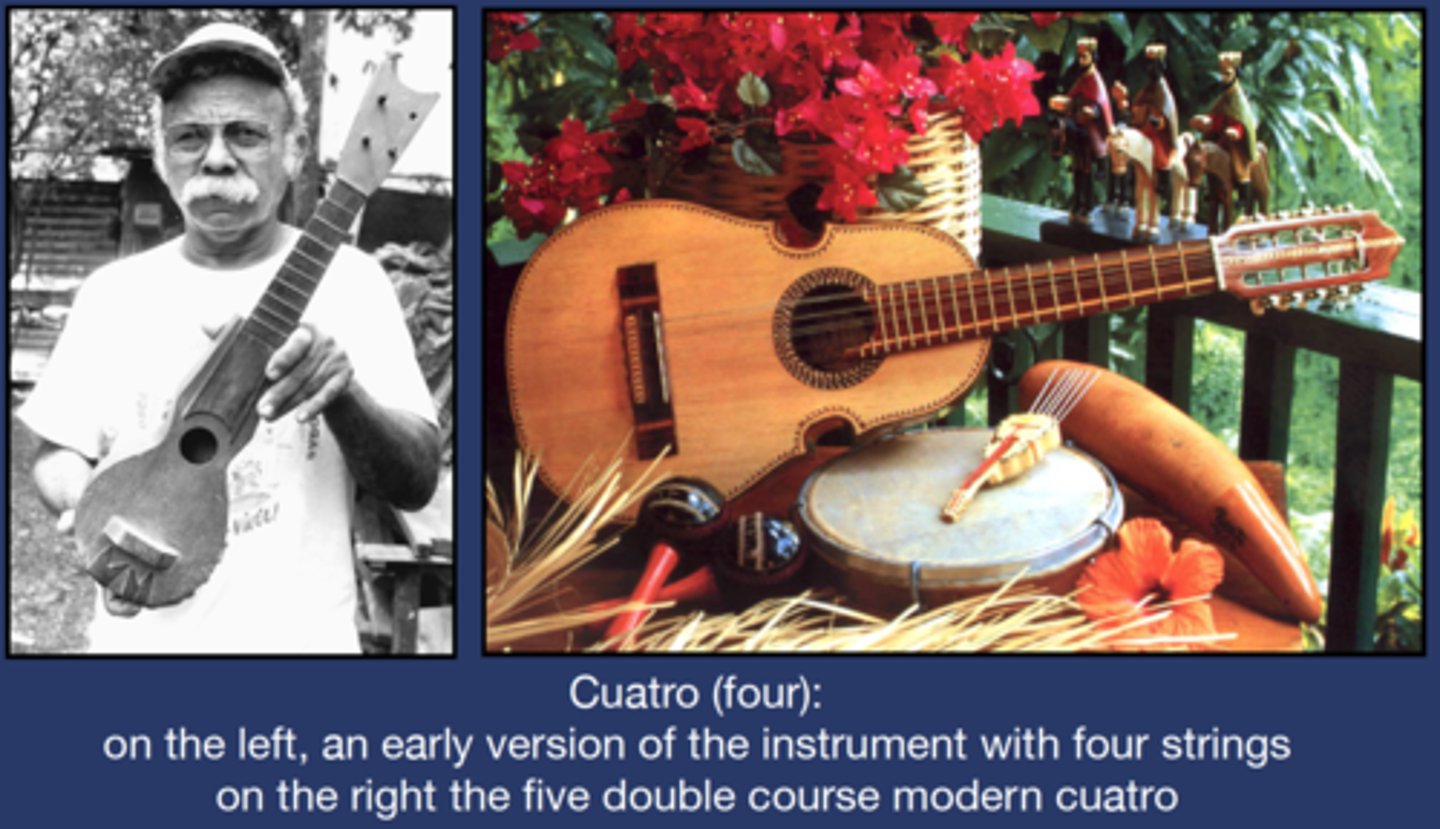
Steel Band
large percussion orchestra of Trinidad and Tobago, featuring pans (steel drums) of many different sizes and ranges; the pans are made from oil drums
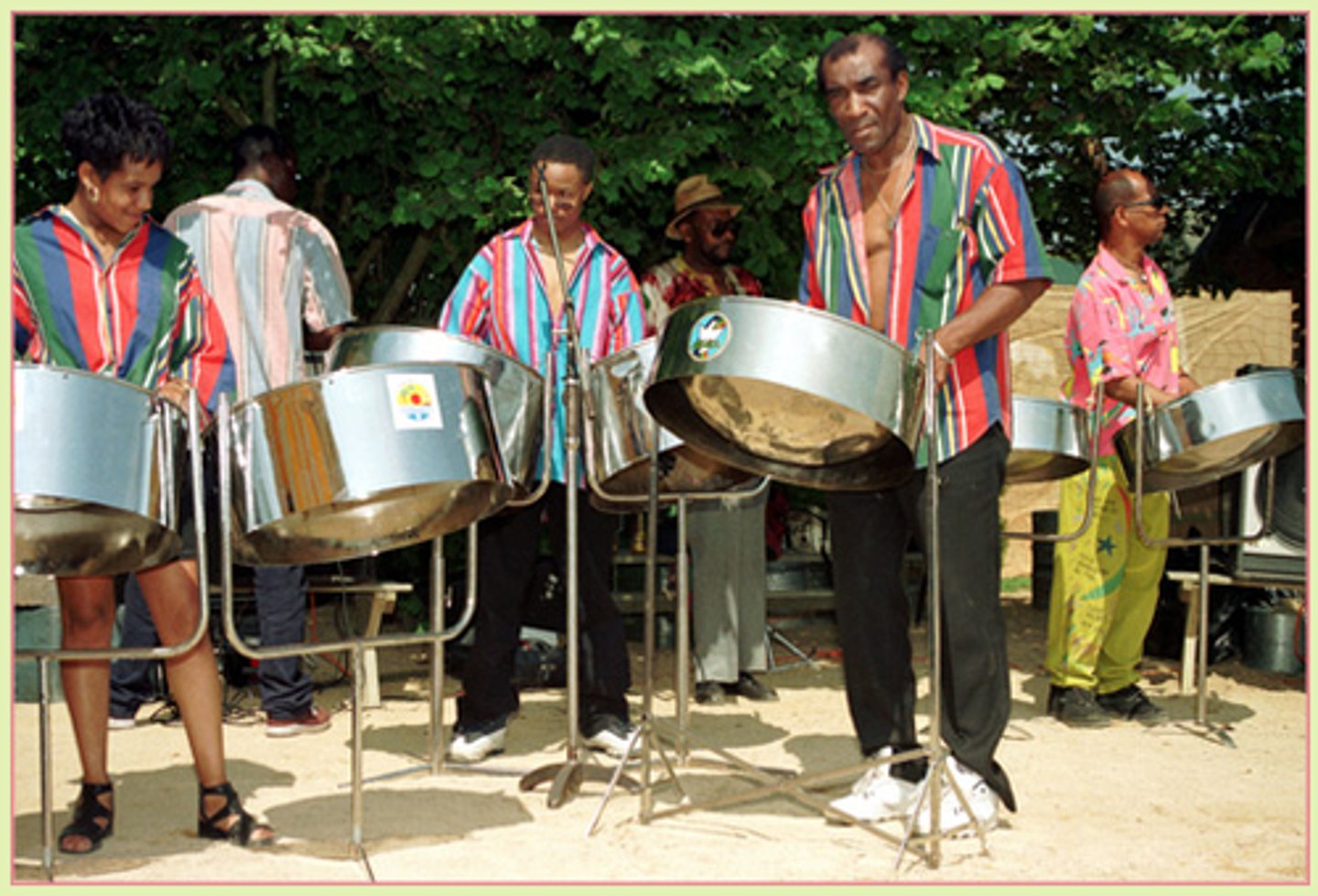
Guiro
a percussion instrument consisting of a notched gourd which is scraped by a stick
-idiophone
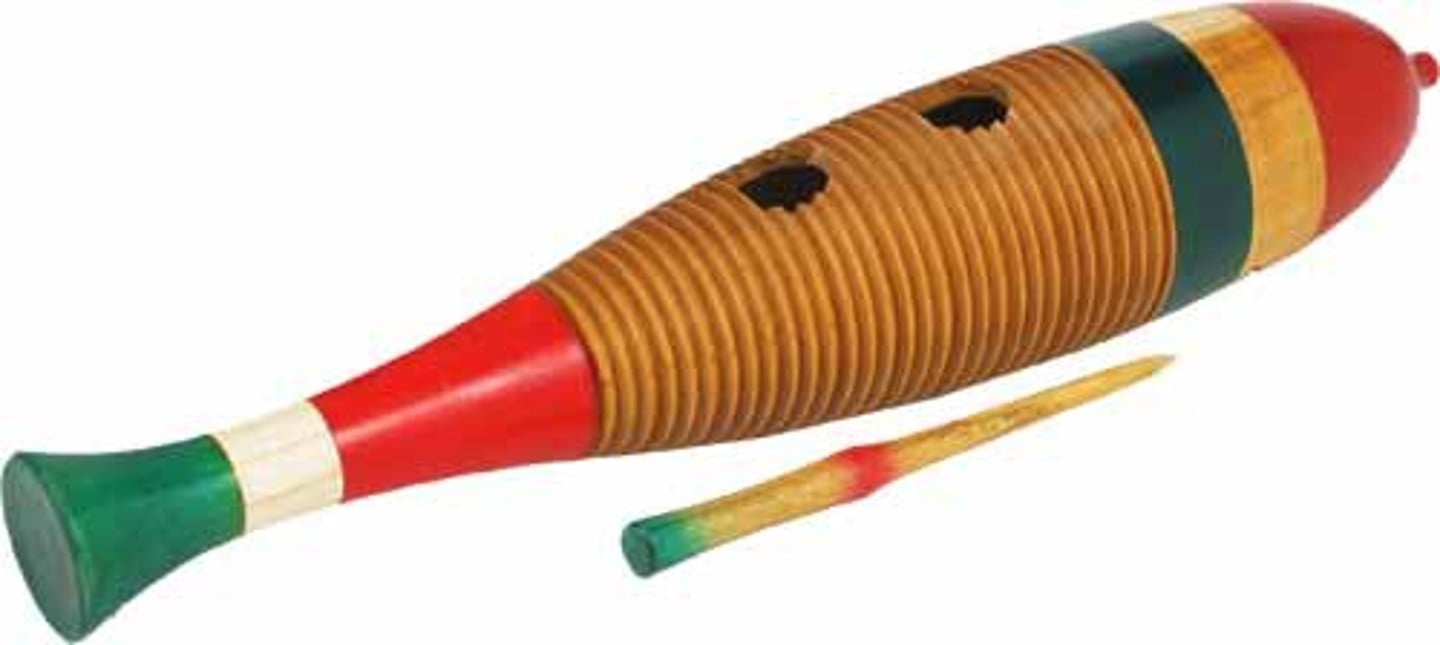
Tamboo Bamboo
A type of ensemble developed after drums were banned in Trinidad, which used cane and bamboo tubes that were beaten with sticks and stamped on the ground.
-percussion ensemble that accompanies calypso songs during
Carnival, consisting of three different instruments, each cut from bamboo
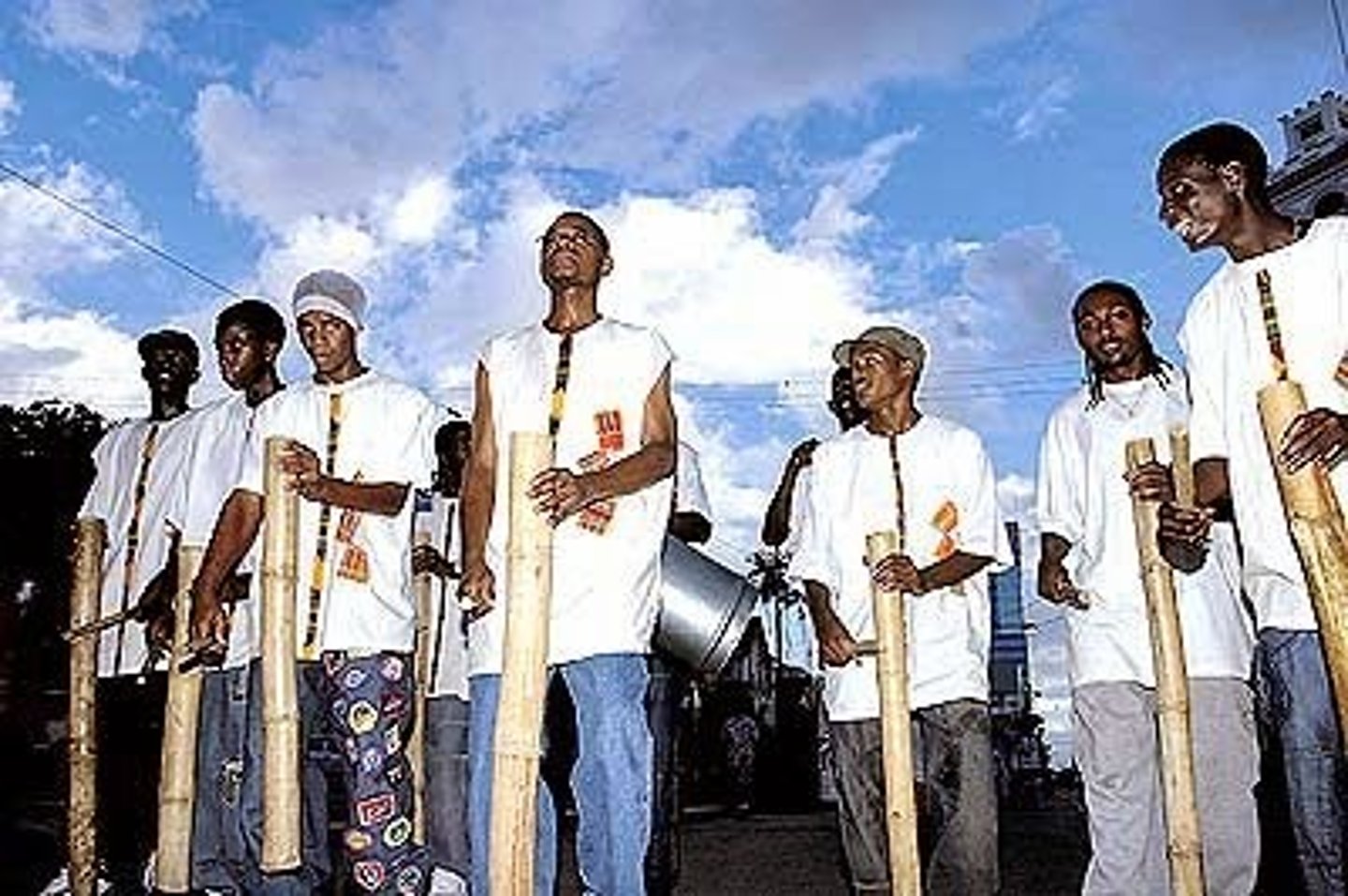
Diaspora
A dispersion of people from their homeland
Band
organization of the people involved in the Carnival (many different groups)
Iron
any of the un-pitched or relatively pitched instruments in a steel band
US: "the engine room"
Mas
everything and anything leading up to Carnival (Trinidad and Tobago)
Pan
steel drum; invented in Trinidad and Tobago
-Came from 55-gallon oil drums (tanks, containers, etc.)
-No two pans are the same
Rake-n-scrape
A traditional Bahamian music usually played on accordion, saw, and goatskin drum
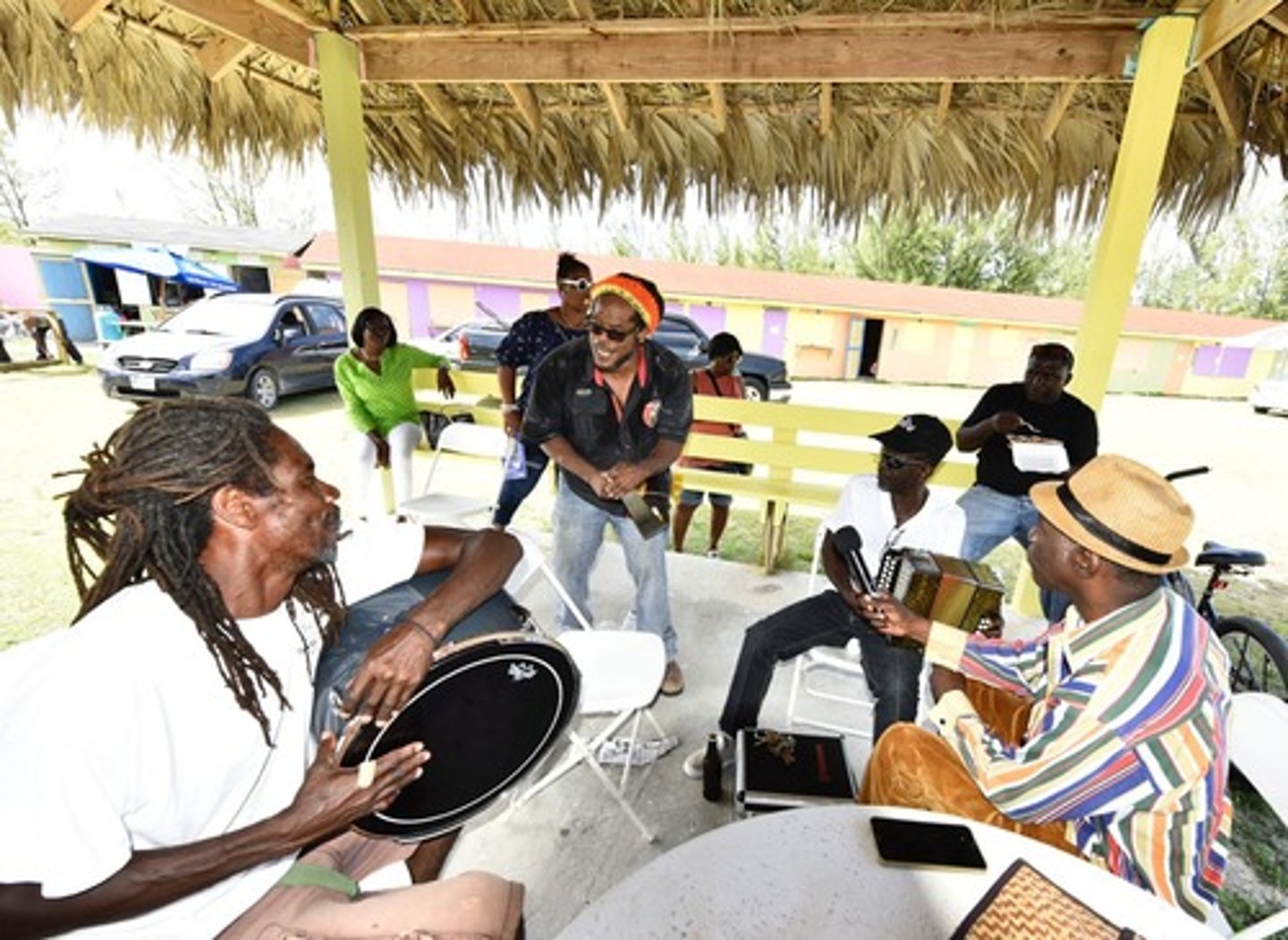
Obeah
African religious ideas and practices in the English and French Caribbean islands
-associated in the Bahamas with folk
magic and at times with black magic
Cariso
used to describe a French Creole song in the 1780s, and in Trinidad, the (mostly
female) chantwells performed this during the first half of the nineteenth century.
The chantwells,
assisted by drums and alternating in call-and-response, were a central component of the practice called
kalenda (stick-fighting)
Calypso
a traditional French Creole humorous song that comments on life in the Caribbean
"words and music"
Rumba
developed during the second half of the nineteenth century as a secular alternative to
sacred African-derived drumming traditions in Cuba. The ensemble generally consists of a lead vocalist, a chorus, and at least three types of percussion instruments (clave,
palitos [short sticks], and three congas)
Three most popular: the guaguancó,
the yambú, and the columbia
Metropole
the parent state of a colony
Bele
a folk song and dance from Dominica
Junkanoo
A Bahamian festival, celebrated on Boxing Day (Dec. 26) and New Year's Day and including music, costume arts, and dance
an annual Bahamian festival of music and dance, developed in the eighteenth century and took the form of a night-time festival during which slaves would get together to visit, celebrate, and socialize
Zouk
Popular music style of the French Antilles, popularized in the 1980s by the band Kassav
Caribbean disco dance and corresponding type of fast rhythmic music
Punta
a song genre that symbolically reenacts the cock-and-hen mating dance and is usually composed by women
-performed during festivals, at wakes, and at celebrations that follow dugu ceremonies (religious ceremonies during which a family appeals to the ancestors for help in solving a given problem)
-usually involves call and response singing, drums, rattles, and sometimes conch shell trumpets
-The drums used:the primero and the segunda
Punta Rock
Popular music style developed by the Garifuna, featuring call-and-response vocals and a rich percussion accompaniment derived from traditional punta music
chutney
a folk music of South Asian origin, usually sung by women for women at celebrations
Chutney-Soca
popular music style of Trinidad that combines elements of two earlier styles, soca and chutney
a crossover style of music incorporating Soca elements and Hindi-English lyrics, Chutney music, with Indian instruments like the dholak and dhantal.
Soca
a modern Trinidadian and Tobago pop music combining "soul" and "calypso" music.
a West Indian style of music, a blend of soul and calypso
merengue
a Dominican dance music in 4/4 meter developed from danza and contradanza
The Mighty Sparrow
- King of Calypso singer-songwriter, and guitarist
-he represented a new generation of calypso artists.
-He and Lord Melody recorded calypso verbal duels, including "Picong Duel"
Ophie and the Websites
popular Rake 'n' scrape group
George Symonette
goombay (combo of rake n scrape and calypso - blend of various Caribbean cultures) artist in the 1950s - "Love Alone" - worked tourist circuit in Nassau with calypso covers
Lord Caresser
-1937 : records "Edward VIII" increases calypso popularity in the 40s and 50s
Lord Invader
Calypso singer, wrote "Rum and Coca Cola"
Mbira
an African musical instrument, a lamellaphone, of the idiophone type, has 22 keys
(tongues)
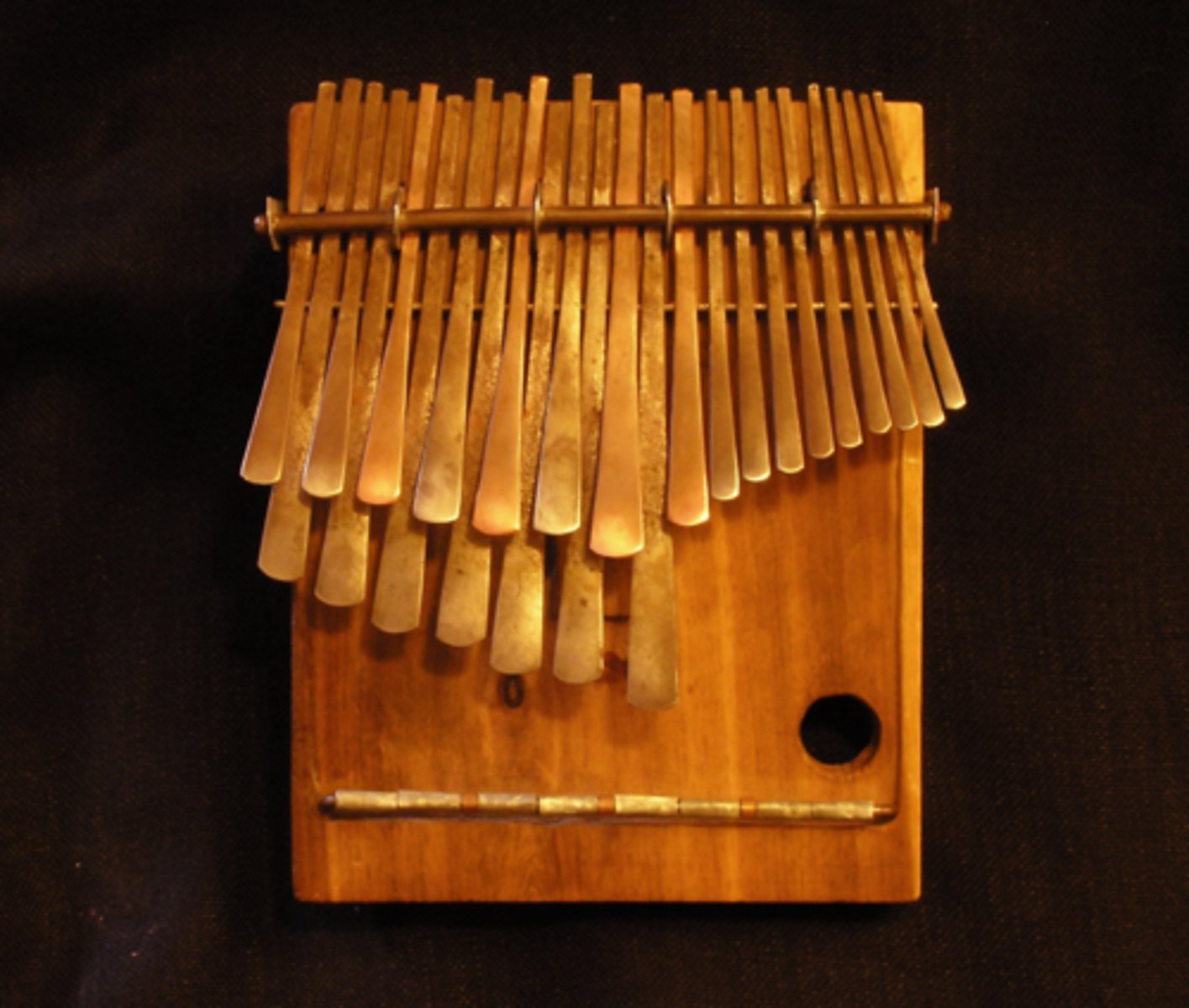
balo
xylophone
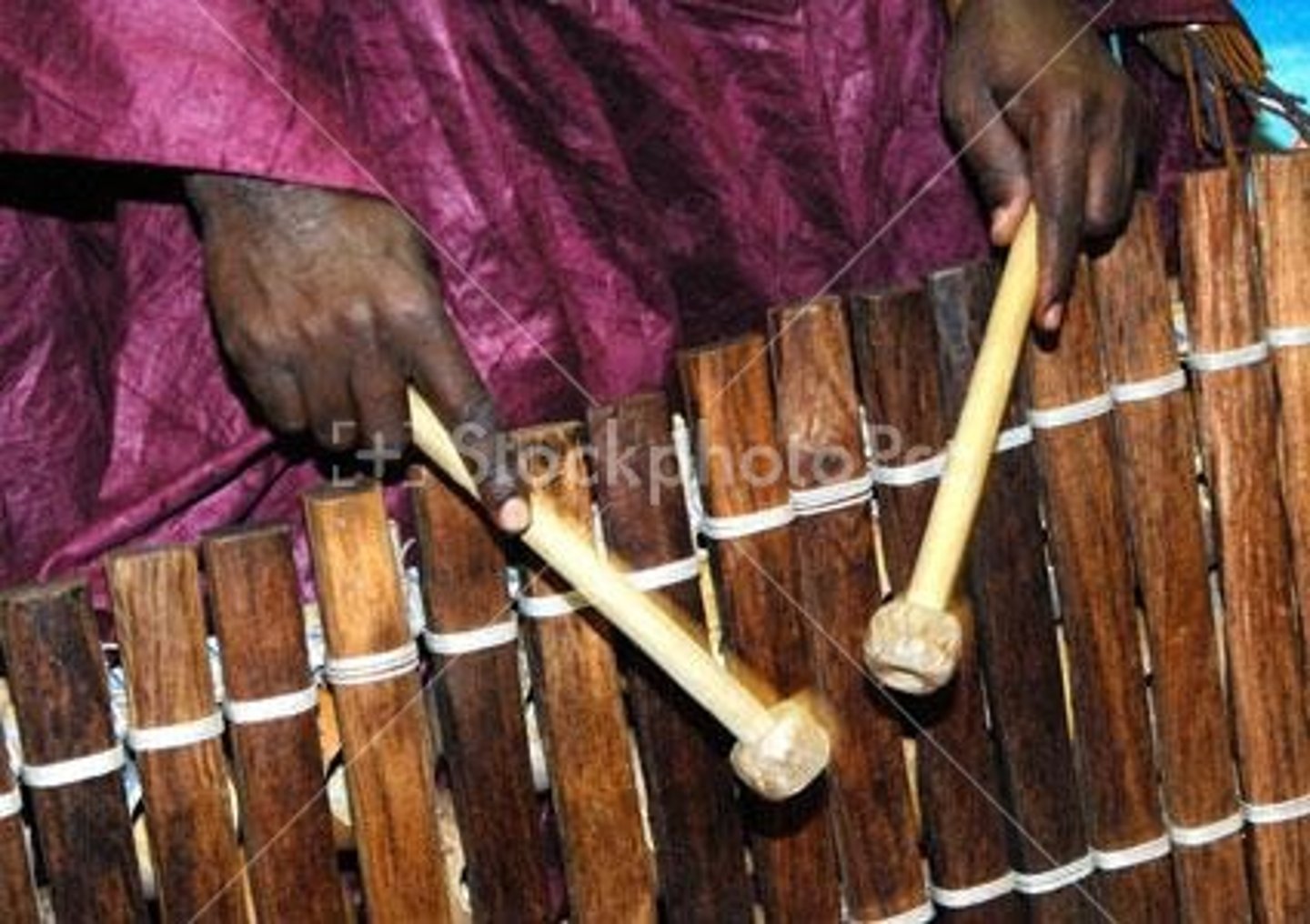
Kora
a harp-lute with 21 strings (arranged in two parallel rows perpendicular to the skin face of the gourd sound box) and with a range of over three octaves
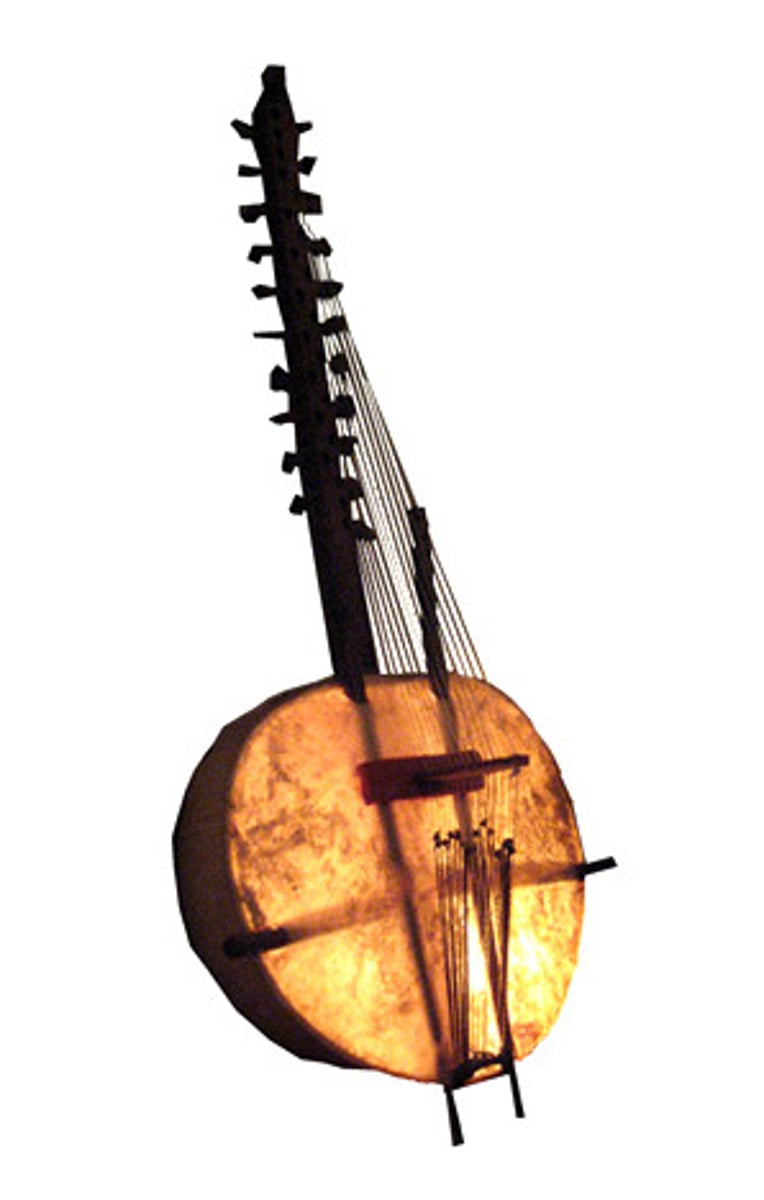
Kotingo
a five-stringed plucked lute with a skin face like the banjo
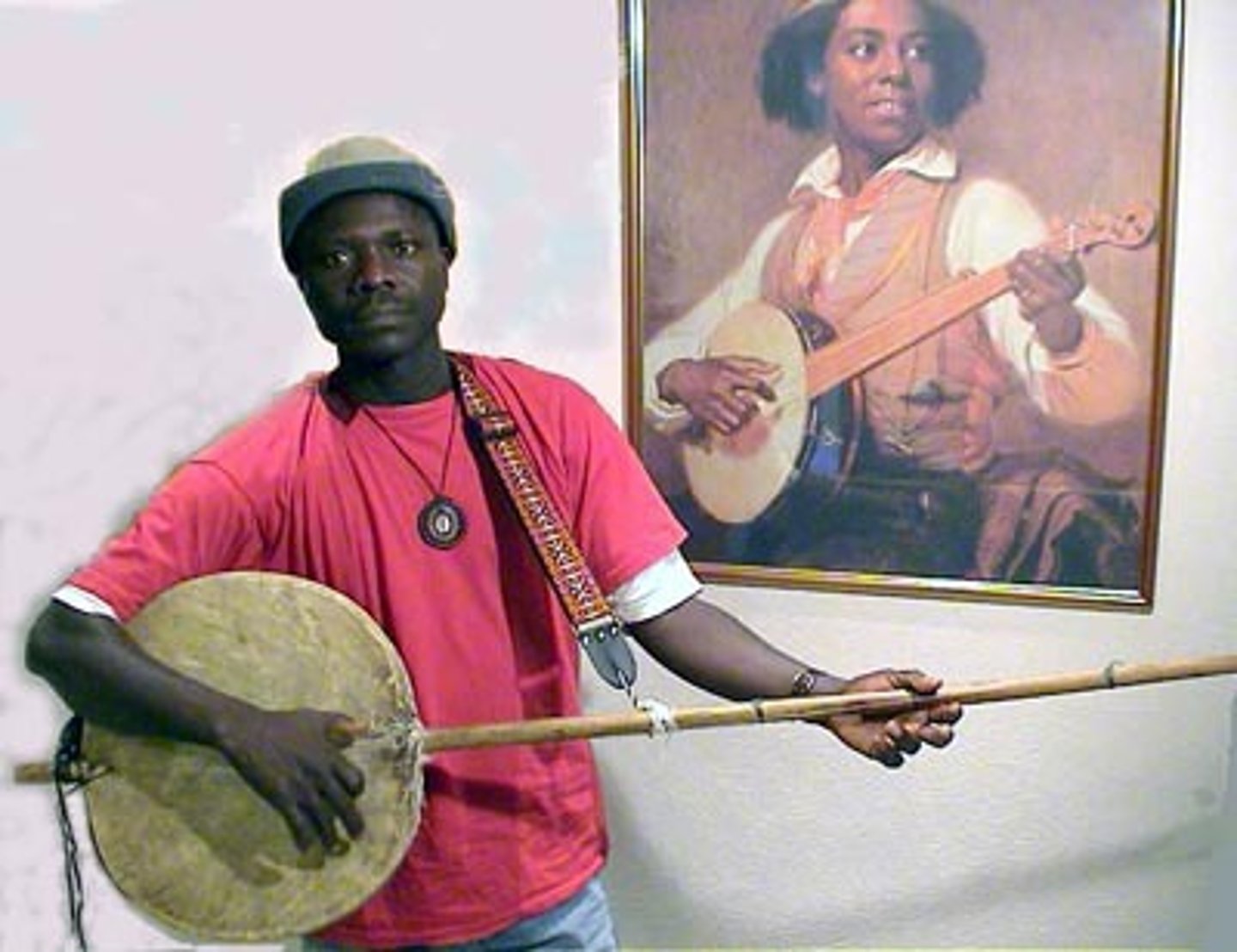
Donkilo
in kora music, a tune with several phrases of text
basic vocal melody
Sataro
improvisatory, passionate speechlike style of singing in kora music
Birimintingo
improvised instrumental interludes in kora music
Kumbengo
Short instrumental ostinato on the Kora.
Bira
a family sponsored event wherein the ancestors interact with the living
Lamellaphone
A general class of musical instruments that have tuned metal or reed tongues set on a bridge mounted to a soundboard or box; it is played by striking the keys
Also known as mbira
Interlocking
division of a single melodic or rhythmic line between two or more instruments/voices
the practice of fitting one's pitches and beats into spaces of other parts, or alternating the pitches or phrases of one part with those of others to create the whole; also called hocket
Ostinato
a continually repeated musical phrase or rhythm
Hocket
Interlocking pitches between two or more sound sources to create a single melody or part.
-polyphony
Pgymy
nomadic, semi-autonomous hunter-gatherers of equatorial rainforest areas. Communalism is a way of life because survival depends on cooperation. The key values of their society-- egalitarianism, consensus, and unity--are reflected in their musical culture.
Jali
"wordsmith"--a professional musician/verbal artist who is simultaneously an
oral historian, musician, singer-bard, and praise
singer
Nyamalo
Craft specialists in Mande societies, a category including professional musicians
Sula
In Mande societies, "ordinary people": farmers, merchants, etc.
Guitarron
A large, plucked, four- or five-string bass lute with an expanded belly that serves as the bass instrument in a mariachi ensemble.
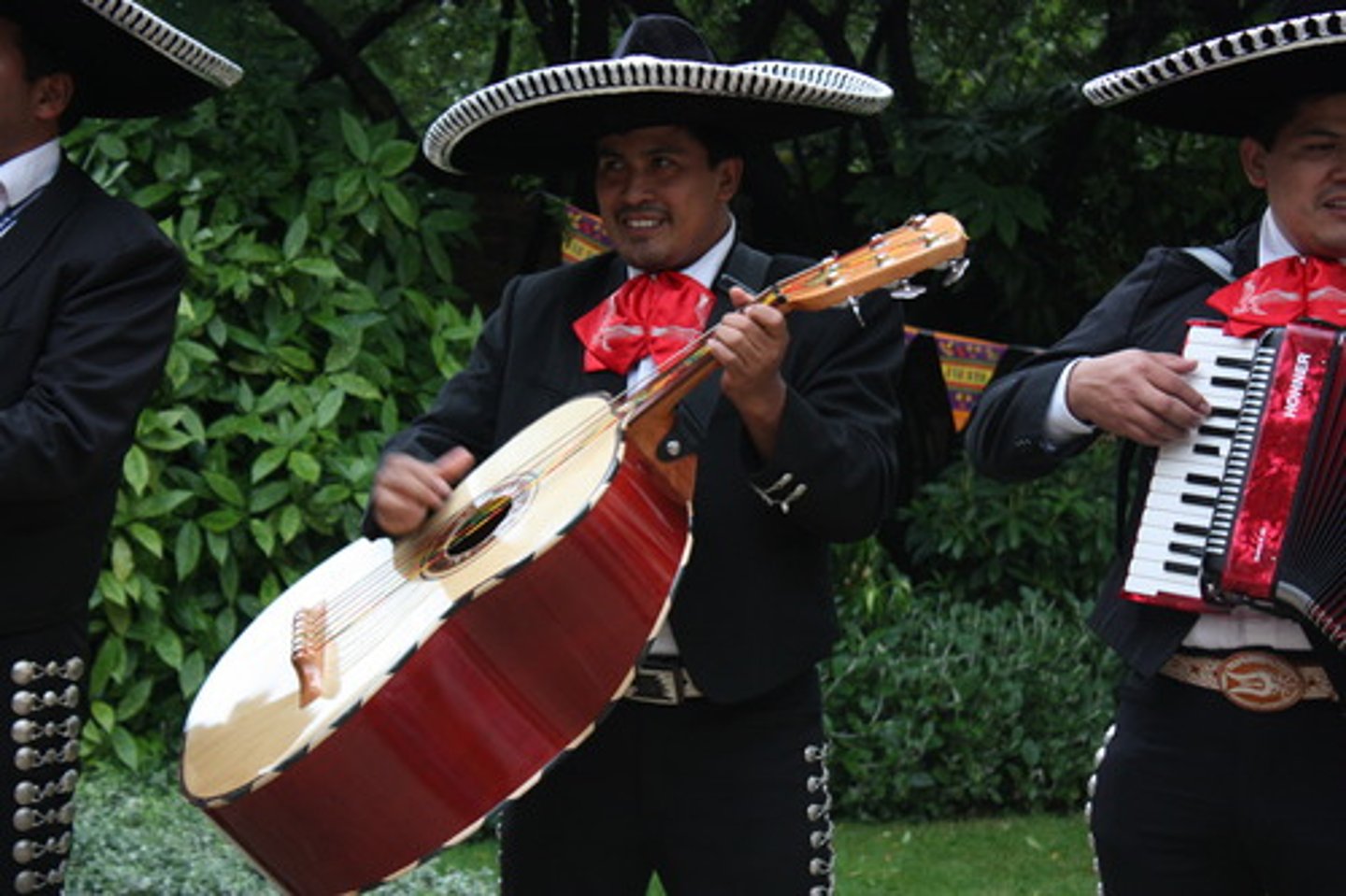
Kenas
Appalacian end blown flute; breathy sound
Aymaran dry-season instrument. End-notched flute with V-notch.
-metal flute
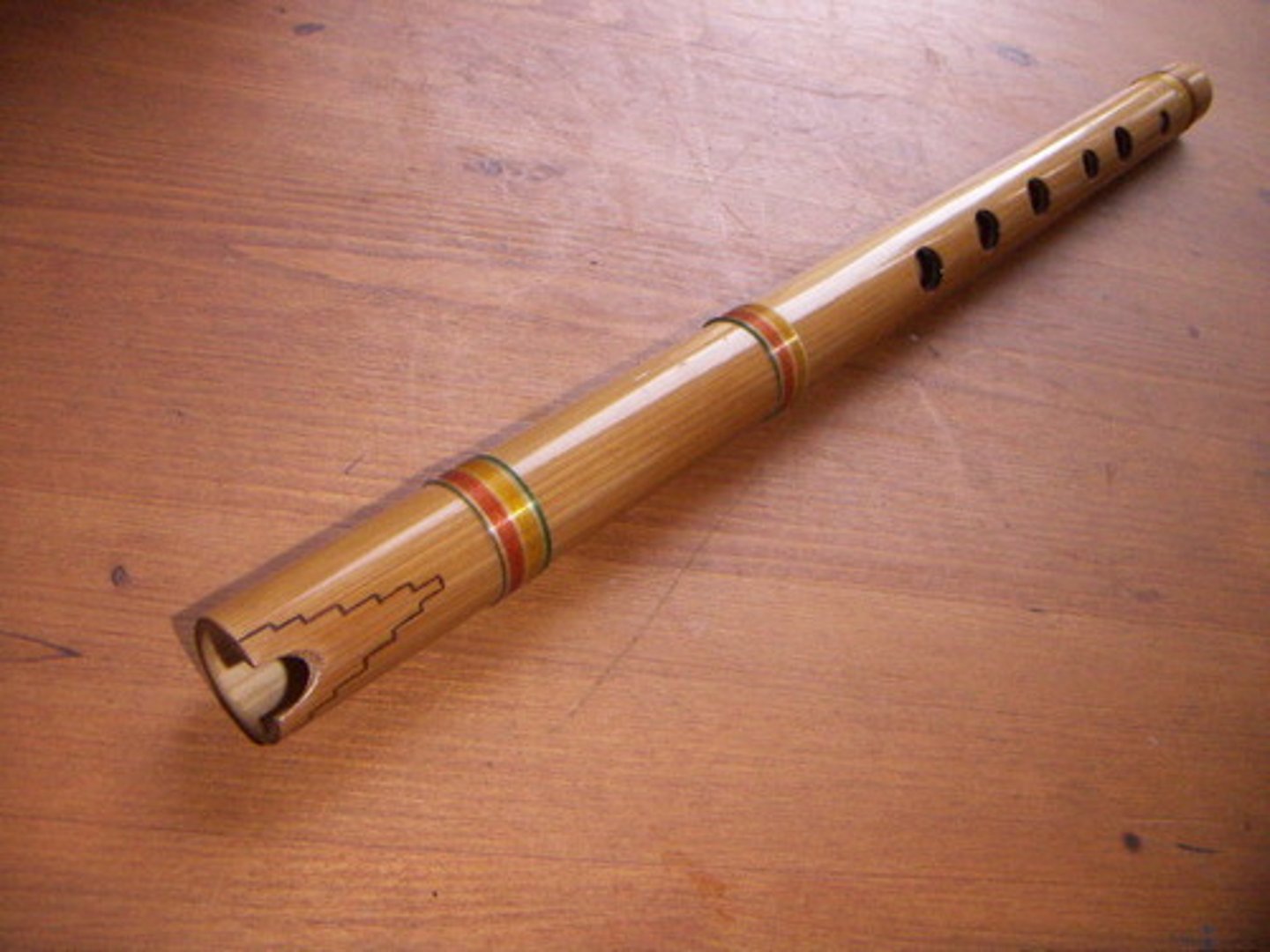
Requinto
Four- or five-stringed lute, a smaller cousin to the guitar and one of the central instruments in son jarocho
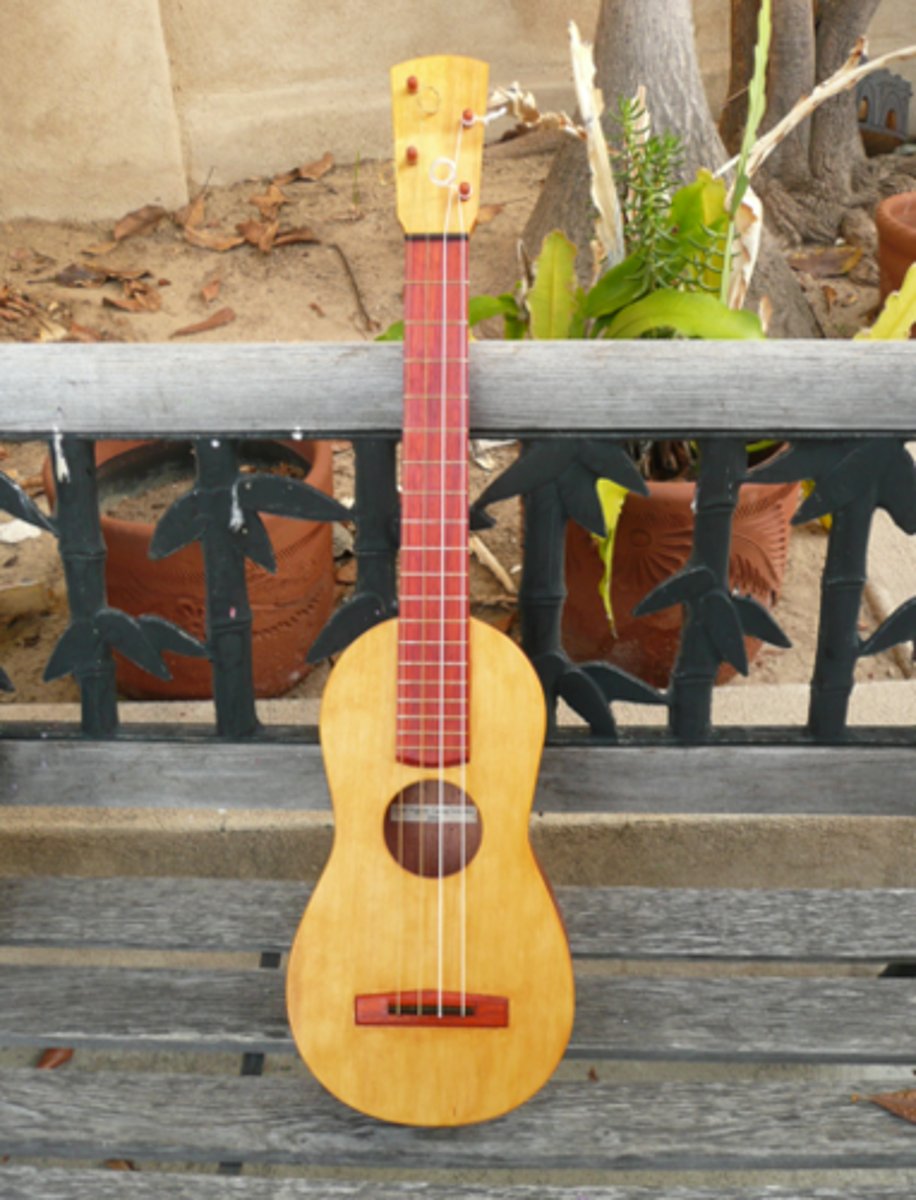
Jaranas
small guitar with 8 strings
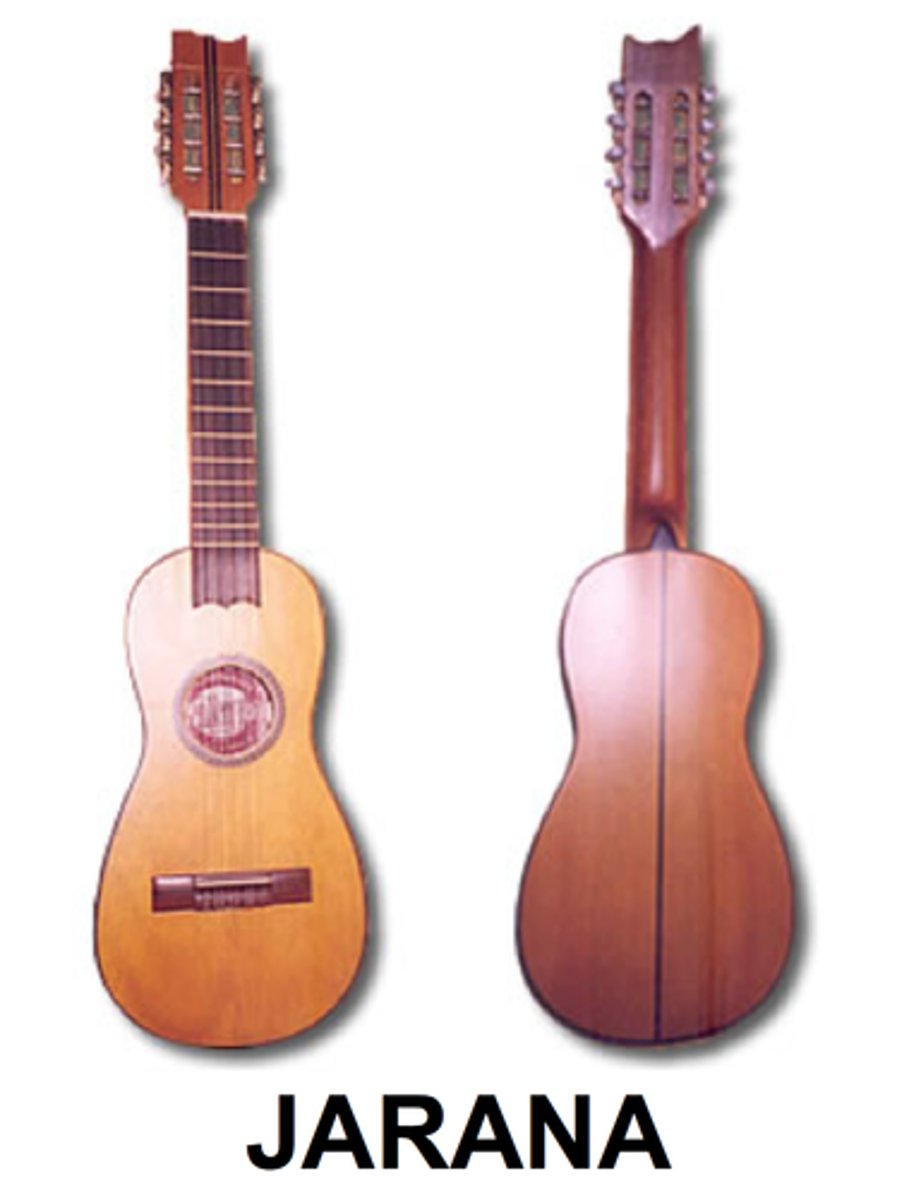
Huapanguera
a guitar variant, larger
than a guitar, and with eight strings
Also called guitarra quinta
Marimba
a percussion instrument with wooden bars tuned to produce a chromatic scale and with resonators
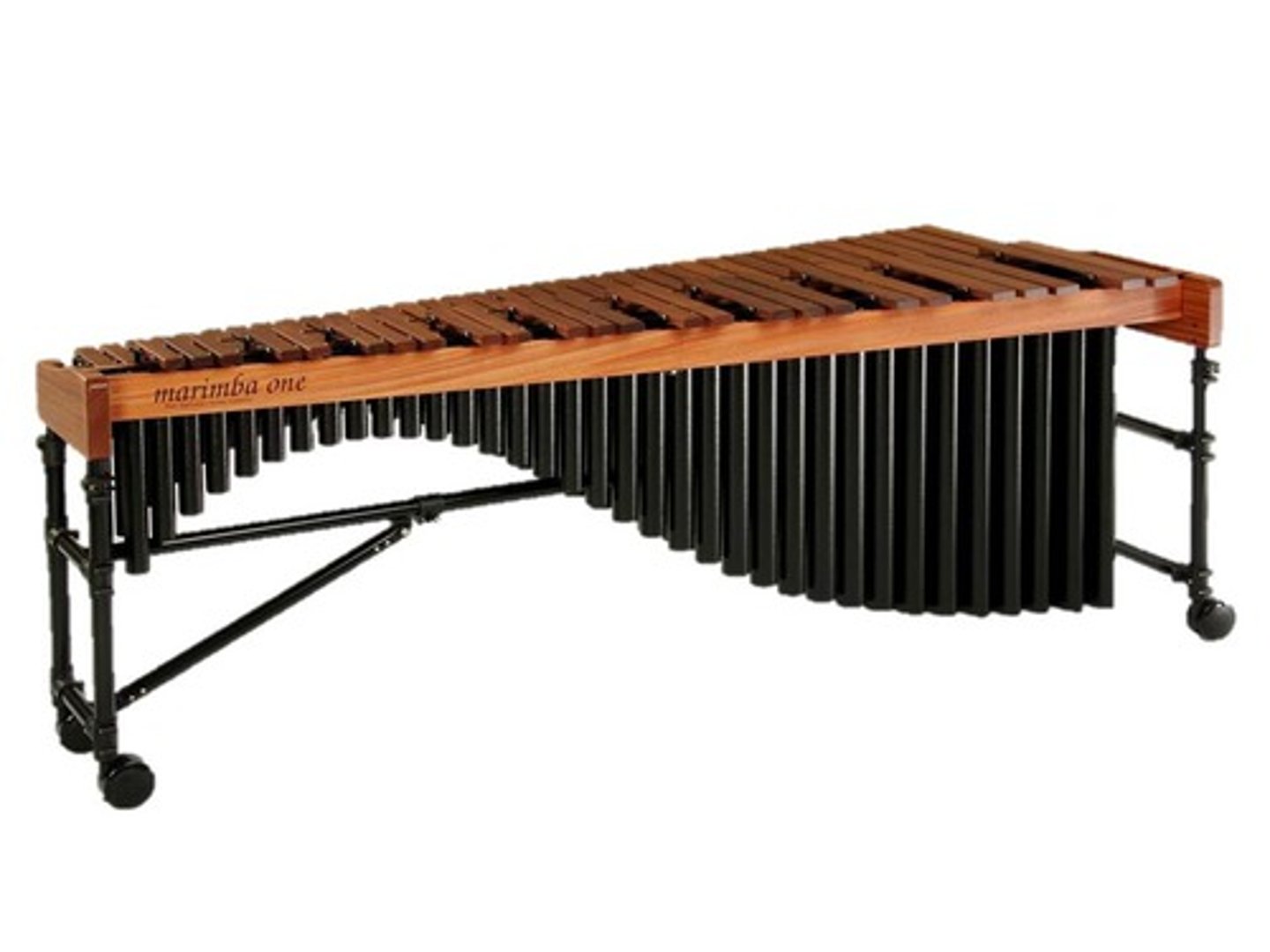
bajo sexto
Oversized Mexican twelve-string guitar that typically served as a bass instrument in small groups.
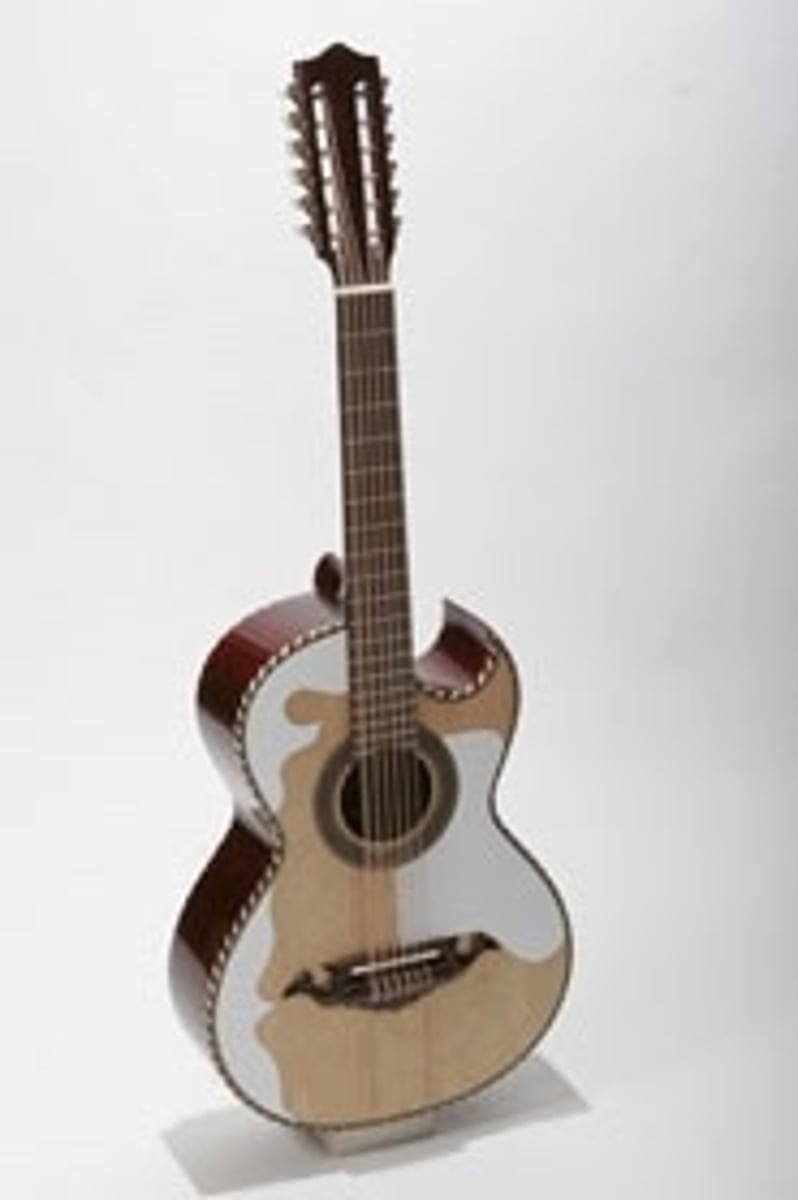
Siku
Latin panpipes
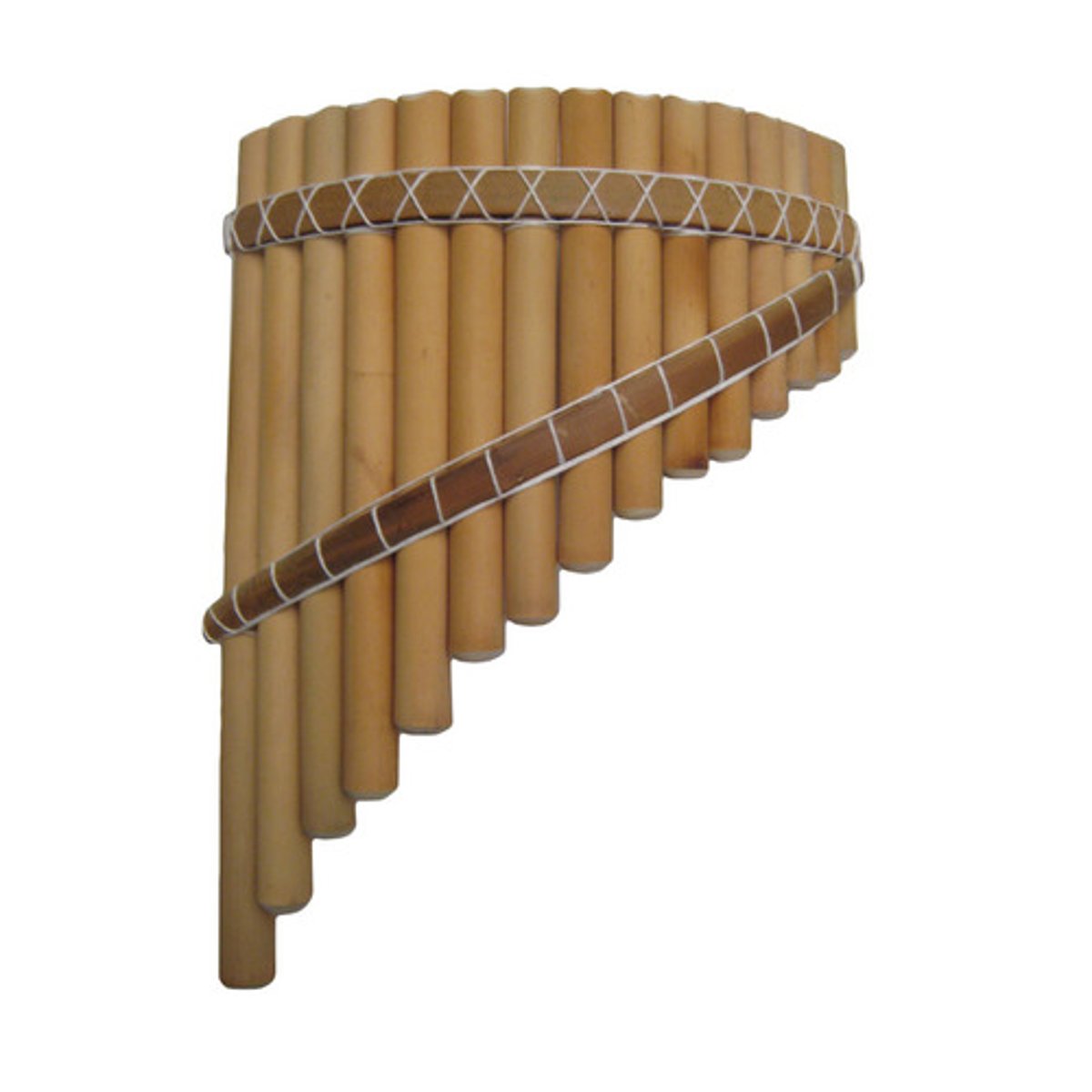
Cajas
large indigenous Aymara snare drum
Capoeira
a martial art and dance that developed in Brazil from Angolans who were taken there by the Portuguese from Africa
tango
A Latin American dance performed at a moderately slow, walk-like tempo in 4/4 meter
Mestizo
A person of mixed Spanish and Native American ancestry.
Huayno
music style combining elements of Peruvian Native America and Spanish musical traditions; incorporates high female vocals, guitar, violin and indigenous instruments
Orquesta tipica
A mixed ensemble of European instruments and indigenous Andean flutes
Sesquialtera
A rhythmic structure that alternates between two-beat and three-beat accentuation (3:2)
Hemiola
a shift of the rhythmic pulse from a division of 2 to a division of 3
Marinera
mestizo song-dance genre of Peru in sesquialtera rhythm
Yaravi
A slow, sad, lyrical mestizo song genre from Peru
Son
Mexico''s most important song-dance genre, a strophic song usually on romantic themes and in many regions characterized by sesquialtera rhythm.
Jarocho Ensemble (son)
musical group from rural, southern coastal region of Mexican state of Veracruz
-large diatonic harp, requinto, jaranas
-specialize in son
Huasteca Ensemble (son)
Mexico group hailing from Northern Veracruz and Tamaulipas state, featuring violin accompanied by two types of guitars
Mariachi
A Mexican style of music played by ensembles of violins, guitars, and two or more trumpets.
Cunjunto Nortenos
A popular dance band originally associated with northern Mexico and southern Texas, featuring the 3-row button accordion, bajo sexto (12 strong guitar) bass and drums.